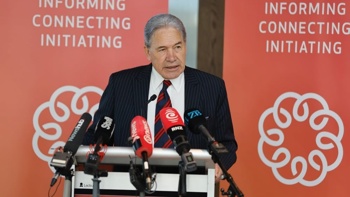

Artist Sirpa Elise Alalaakkola says her art is her identity and soul, but her ex-husband has claimed copyright of the work as relationship property in what has been described as a “precedent-setting” case.
“You cannot separate her art from her as a person,” her lawyer Clive Elliott KC said today in the Court of Appeal in Wellington on Thursday.
“When an artist says ‘this work of art embodies my life force, my mauri’, that for Ms Alalaakkola is no different.
“It is not relationship property; it is the property of the author.”
Elliot is arguing the right to Alalaakkola’s works, and what can be done with them, should rest solely on the artist.
Alalaakkola is appealing a 2021 decision from Justice Andru Isac, who determined the work produced during her 20-year relationship with ex-husband Paul Palmer was, in fact, relationship property.
Palmer’s lawyer Brian Fletcher today said that the copyright is relationship property and up to the courts to divide.
The Marlborough artist says her work is her own intellectual property, and to have copyright taken from her or shared could damage her reputation as an artist.
The case involves both the Property Relationships Act (PRA) and the Copyright Act, with a number of complicated potentials in resolution.
But for Alalaakkola it is simple: “I am my art, my art is me”.
Elliott said his client was a successful artist before her marriage in the late-90s and continues to be after her separation.
Alalaakkola was married to Palmer for 20 years, and during that time made many original works.
After the couple’s property was divided by the family court in 2020, a separate decision was made that the copyright to the artist’s work was separate and hers alone.
Palmer appealed, claiming the copyright of the artist’s work created during the relationship, and the art itself should be divided equally between the two.
In the 2021 High Court decision, Justice Isac said it was not clear what Palmer meant by equal, either by value or number.
During the family court hearing the previous year, Palmer and Alalaakkola agreed he could keep paintings, but he had hoped to have the copyright transferred as well so copies could be produced as an income stream.
This was an issue discussed in court today, with Elliott submitting the artist should be the sole individual deciding what happens with her intellectual property.
“We say the choice and control should stay with the artists,” Elliott said.
“Each piece that she produces, she chooses to share for sale but it’s a conscious decision on her part to let that artwork go.”
Elliott said his client was fearful her art could be weaponised, and used as a means of control outside of the private relationship.
If copyright was granted to Palmer for specific artworks, Alalaakkola would not have a choice in how, or when, her art is presented to the world, Elliott argued.
Lawyer Brian Fletcher, representing Palmer, submitted that the copyright to work created during the marriage “is quite clearly property” and in relation to the PRA there was no reason why it should not be defined as relationship property.
“It is not the talent that is the property, it is the art itself. It moves from being a personal right,” Fletcher said.
Fletcher said the economic rights, the copyright of the physical art, were separate from Elliott’s argument of intellectual property and artistic skill.
“As far as copyright is concerned, copyright is property, copyright is relationship property, relationship property is divided 50/50 and how it’s divided is a matter for the court,” Fletcher said.
The decision of the court was reserved and will be released at a later date.
- Hazel Osborne, Open Justice

Take your Radio, Podcasts and Music with you









